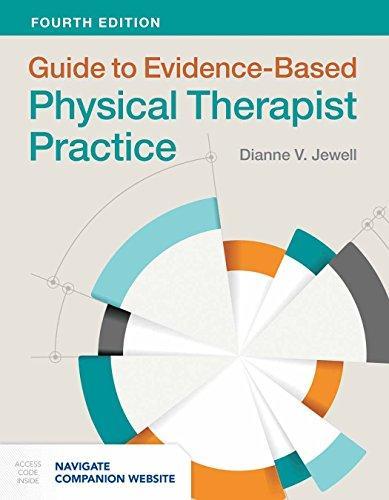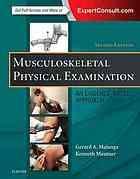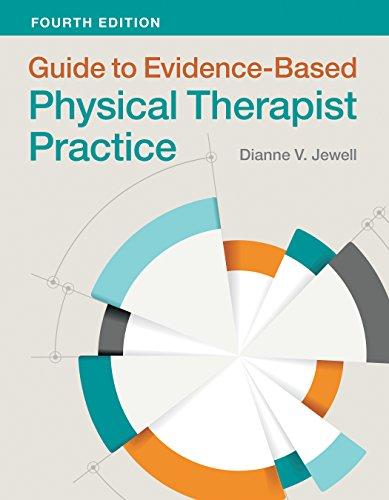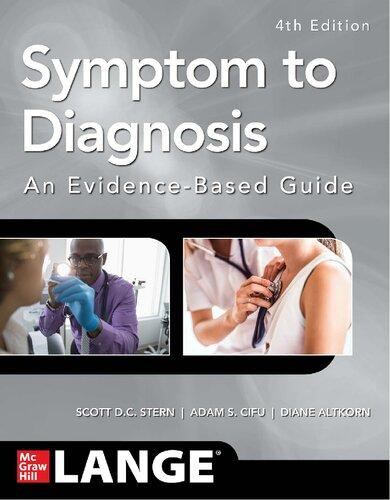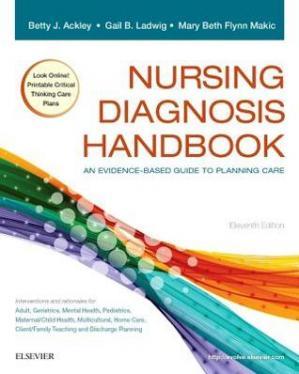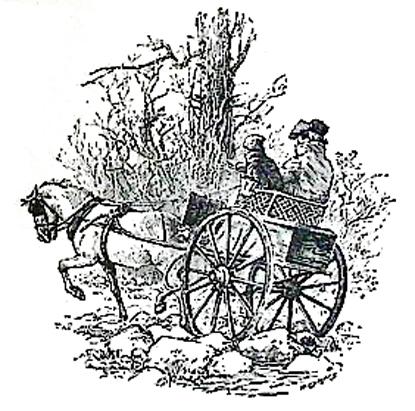What is Evidence-Based Physical Diagnosis?
When clinicians diagnose disease, their intent is to place the patient’s experience into a particular category (or diagnosis), a process implying specific pathogenesis, prognosis, and treatment.This procedure allows clinicians to explain to patients what is happening and to identify the best way to restore the patient’s health. A century ago, such categorization of disease rested almost entirely on empiric observation—what clinicians saw, heard, and felt at the patient’s bedside. Although some technologic testing was available then (e.g., microscopic examination of sputum and urine), its role in diagnosis was meager, and almost all diagnoses were based on traditional examination (Fig. 1.1). For example, if patients presented a century ago with complaints of fever and cough,the diagnosis of lobar pneumonia rested on the presence of the characteristic findings of pneumonia—fever, tachycardia, tachypnea, grunting respirations, cyanosis, diminished excursion of the affected side, dullness to percussion, increased tactile fremitus, diminished breath sounds (and later bronchial breath sounds), abnormalities of vocal resonance (bronchophony, pectoriloquy, and egophony), and crackles. If these findings were absent, the patient did not have pneumonia. Chest radiography played no role in diagnosis because it was not widely available until the early 1900s.
Modern medicine, of course, relies on technology much more than medicine did a century ago (to our patients’advantage), and for many modern categories of disease the diagnostic standard is a technologic test (Fig. 1.1). For example, if patients present today with fever and cough, the diagnosis of pneumonia is based on the presence of an infiltrate on the chest radiograph. Similarly, the diagnosis of systolic murmurs depends on echocardiography and that of ascites on abdominal ultrasonography. In these disorders, the clinician’s principal interest is the result of the technologic test, and decisions about treatment depend much more on that result than on whether the patient has egophony, radiation of the murmur into the neck, or shifting dullness. This reliance on technology creates tension for medical students, who spend hours mastering the traditional examination yet later learn (when first appearing on hospital wards) that the traditional examination pales in importance compared to technology, a realization prompting a fundamental question: What is the diagnostic value of the traditional physical examination? Is it outdated and best discarded? Is it completely accurate and underutilized? Is the truth somewhere between these two extremes?
Examination of Fig.1.1 indicates that diagnosis today is split into two parts.For some categories of disease,the diagnostic standard still remains empiric observation— what the clinician sees, hears, and feels—just as it was for all diagnosis a century ago. For example, how does a clinician know the patient has cellulitis?The only way is to go to the patient’s bedside and observe fever and localized bright erythema, warmth, swelling, and tenderness on the leg.There is no other way to make this diagnosis (technologic or not).Similarly,there is no technologic standard for Parkinson disease (during the patient’s life), Bell palsy, or pericarditis. All of these diagnoses—and many
Another random document with no related content on Scribd:
and then I can ride back with him while you go on and see Thompson about that harness again, and tell Wilson I shall want the oats a week earlier than I expected. You're sure the doctor said he was coming round by Leaburn?"
"Yes, sir," answered Eric.
His preparations for the journey were soon made, for he had outgrown the few clothes he possessed when his mother died, and an old coat and knee breeches of his master's supplied the place of all other garments, so that he had but to turn up the high collar of the coat, button it a little closer, draw his long grey stocking-like cap a little further over his ears, and he was ready.
Betty came to the door again just as they were starting.
"The pain be awful bad agin," she said, with a keen look at Eric as she spoke.
"I'll have the doctor here soon. We shall him before he turns off to Leaburn;" and as she spoke, Tyler gave the signal to Peggy that she might move on, the chaise lurched a little, as the wheels were dragged out of a rut deeper than usual, and then they went on as fast as the holes and water-filled cart-tracks would permit.
Horse and riders were soon well bespattered with mud and water, for the road after the winter frosts and the present rain were more like a fresh-ploughed field than the king's highway and a main road to London. It was nobody's business in those times to keep the roads in order, and so the gig went floundering through the mud and water for the first mile without anything worse happening than an occasional bump and shake, with a good deal of straining on the part of Peggy, when the gig came to a positive standstill in one of the numerous holes.
Eric had gone on foot earlier in the morning, picking his way better than Peggy could, and now, seeing how slow their progress was, he proposed that he should get out, make his way to the cross roads, and tell the doctor to come straight on to Summerleigh before he went to Leaburn, while his master went back with Peggy and the gig.
But Tyler looked suspiciously at Eric as he made this proposal. Betty's words were still in his mind, and he was determined to find out whether the boy had been to the doctor, or whether he had shirked the disagreeable journey before. He had no cause to suspect the lad, for he had always done his work faithfully, and the horses fared better
under his care than under old Toby's; but he knew that everybody else suspected him of evil practices, and now his own mind was a little affected by it, although the notion of its being witchcraft he could afford to laugh at by this time.
So to the lad's suggestion, he returned rather a surly answer, and they plunged on again through the mire and water, which effectually concealed the larger boulders with which this part of the road was liberally strewn.
"We must be careful here, master," said Eric, when Peggy came to a standstill before some obstacle which was hidden from sight by the sea of mud and water.
"Of course we must," said Tyler impatiently, and he gave Peggy a flick with the whip as he spoke.
The horse started forward, the wheel struck against one of the large stones, and the next minute the chaise was lying on its side, and Eric found himself in the hedge that skirted the roadway. His master lay motionless a few feet from the overturned gig, while Peggy kicked and plunged to be freed from the broken shafts and harness.
As soon as he could scramble out, Eric ran to soothe the frightened horse, thinking his master would set things straight and send him on now for the doctor. But to his dismay, Tyler never moved, never uttered a groan, though it was some minutes before he could make the horse stand still.
As soon as he had managed this, he ran to his master, and raised his head, which he found resting upon a large stone. Blood was flowing from the forehead, and Eric grew more alarmed as he noticed the deathly whiteness of the face.
"Can't you speak, master? Can't you tell me what to do?" he said in an agonised tone; and then he put his hand upon the cold lips.
They were growing stiff, and the boy, recalling his mother's death, felt sure that his kind master had received his death-blow.
He burst into tears, as he thought of the kind words he had so often received. The only really kind words that had been given him by anybody except his mother had come from this man, and now he was dead. Eric seemed to know it beyond a shadow of a doubt before any one else came near to confirm it.
How long he sat with his master's head propped upon his knee, he did not know, but presently a shout to move out of the way made him look up, and he saw the ruddy face of the old doctor, mounted on his horse, but without his gig, only a few feet from him.
"What's the matter here?" he said. "Ain't you the boy from The Magpie?"
"Yes, sir, and this is my master. We were coming to fetch you when the gig tipped over."
"Your master ought to know better than to bring a gig out in such weather," said the doctor in a grumbling tone, as he dismounted and picked his way round to where Tyler was lying.
"This is an awkward place to examine him properly," said he, after feeling the man's pulse; but Eric noticed that the doctor spoke in an altered tone, and he had turned pale while feeling his pulse.
He looked at Eric, and then at the broken chaise.
"How can we get him home quickly?" he said in a puzzled tone.
"Couldn't we carry him if I took this gate down?" said Eric, pointing to one that had been well-nigh torn from its post by the recent gale.
Fortunately a man from the neighbouring farm came in sight the next moment, and Eric shouted to him to come to their assistance.
"Why, it be the landlord of The Magpie, surely," said the man, "and he be dead too. Who did see him die?" he asked suspiciously, looking from Eric to the doctor.
"Come, help us to move him; we may lose the chance of doing anything for him, if he stays here any longer," said the doctor, without replying to the man's question.
And thus commanded, he helped Eric take down the gate, and then, when a bed of their coats had been spread on it, the injured man was carefully lifted up, and the doctor prepared to take his share in carrying him home. But before they had gone many steps, another man appeared, who took the doctor's place, and so he mounted his horse and rode forward to prepare Mrs. Tyler for the return of her husband.
The travellers had not been gone very long as it seemed to Betty before the doctor rode up, and she was beginning to describe her mistress's symptoms, when he said,—
"Yes, yes, the boy told me she was very bad when he came this morning, but she always has a fit of the megrims about this time. Something worse has happened now, I'm
afraid. Where is your mistress? She must get up, if she is in bed."
"Oh, doctor, what can you mean? You know how the poor thing suffers." And Betty began to cry; but the rough old doctor went straight upstairs and told Mrs. Tyler that her husband had been thrown from his gig and seriously hurt.
"I suppose it's only the megrims again that ails you," he added.
Whatever it might be, Mrs. Tyler was ready to help when they carried her husband upstairs and laid him on the bed; only the doctor told her he must see to him first, and sent for a neighbour to give him what help he needed. But somehow, before a word had been spoken as to what the doctor feared, the neighbours knew that the landlord of The Magpie would never walk up the village street again, and when at last the announcement was made that he was dead, men and women looked at each other, and with a sagacious nod whispered,—
"I told you so; I knew how it would be when he was so obstinate about keeping that limb of Satan about the stable."
"But the horse threw him out of the gig," said another, "and his head struck one of those great boulders in the road."
"Ah! But that boy was with him, and the horse that he had bewitched did all the mischief," said a friend of old Toby's, who strongly resented Eric's doctoring the horses.
"Well, now, I've just heard he's more of a Methodist than a witch," said another; "for my Jack caught him once
kneeling down in the forest saying his prayers, which is just what they Methodys do, I have heard."
"Very likely; but where is the difference, pray, when they are both agin the Church and the parsons? At all events, here's the landlord of The Magpie goes out well and hearty with this lad, and soon afterwards the doctor comes along and finds him stone dead. It'll be a case for the coroner, and twelve of us 'll have to sit on the body. Now what are we going to say about that boy?"
"What will the law allow us to say?" asked the parish clerk, who joined the group at this moment.
"That's the question we've got to consider, Mr. Jackson. Will the widow keep him on here at The Magpie, do you think?" he asked.
"He ought to be took before the justices," said another.
"He'll have to tell all he knows to the coroner."
"He's told Bill Newman and the doctor all he knows," put in another speaker; but it was evidently a gratification to all of them when the parish constable arrived and took Eric under his charge.
This was done at the doctor's suggestion, and was not unkindly meant on his part, for he had heard enough from one and the other to make him decide that the only safe place for the lad at this time was the constable's cottage. He could be kept there in safety until the inquest was over, but here in the village, when a little more ale had been consumed, some of the more brutal and reckless of the mob would probably try the experiment of ducking him in the overfull horsepond, thus adding murder to the present accident.
Poor Eric was full of trouble at the untimely death of his only friend, but there was no time for him to indulge his grief. As soon as his master had been carried home, he went back to fetch the horse and broken gig, and the latter was not an easy task, and took him some time to accomplish.
He had just got within sight of The Magpie, wearily plunging through mud and water, dragging the wrecked chaise behind him, when the constable laid his hand upon his shoulder.
"You must come with me, my lad," said the man.
The boy started and turned pale, and visions of men hung in chains for murder rose before him. "What have I done?" he gasped.
"That's just what we mean to find out," said a man who stood near.
"You go quietly home with the constable, my boy," said the doctor, who came out of The Magpie parlour on purpose to say a word to Eric.
The widow was in hysterics now she had been told the news about her husband, and really needed the doctor's care; but he was concerned for the poor boy who had happened to be the dead man's companion on that unfortunate journey, for he knew the popular opinion concerning him.
"Why should I have to go with the constable when I am wanted at the stable? Who will see to Peggy while I am away?" asked the lad.
"Never mind Peggy; she will be taken care of, never fear," said the doctor.
"Somebody ought to give her a warm mash at once," said Eric, looking tenderly at his four-footed friend, who stood shivering in the bitter wind, but did not know whether she ought to seek the shelter of the stable, if Eric did not take her there.
This same bleak wind made the constable impatient.
"You'll have to come, you know," he said rather roughly; "for Mrs. Tyler won't have you again, and has told me to arrest you as a beggar if you do not go quietly."
So poor Eric, feeling sadly depressed and apprehensive of what might happen next, went home with the constable, who took pity on him, and gave him an old suit of clothes to wear while his own were drying, and for lodging let him have a loft over his own kitchen, which was warm and dry, if not very cheerful.
Of course there was a good deal of excited talk over Tyler's accident, and but for the doctor's care, Eric might have found himself much worse off than in the constable's loft, for all the old tales talked of during his mother's lifetime were revived now, and Summerleigh was ready to believe that the landlord of The Magpie had died from magical arts, though the verdict of the coroner's jury upon the doctor's testimony could only make it accidental death, and there was no longer any excuse for keeping Eric out of the way.
He of course had to appear before the coroner's court to be questioned and cross-questioned as to what had happened during that morning when his master met with
his death, though he had told the story to one and another half a dozen times over at least.
Mrs. Tyler took care to see him before he went into the room, to let him know that he need expect no help from her. "I have got another stable boy—a respectable lad, whose mother was an honest woman and not a witch," she added.
So Eric knew that when this ordeal was over, he would be a homeless waif for whom no man cared in all the wide world. That he would be free however, to go where he pleased he had no doubt or until, when the little crowd was moving away, he was again laid hold of by the constable.
"The justices have ordered it this time," he said, in answer to the boy's appealing look.
"But what have I done?" asked Eric.
The man scratched his head. "You have no employment, no means of living, and so in the eyes of the law you are a beggar and vagabond; some say you are a poacher too, and that looks very black against you," said the man, trying to speak severely.
"Poaching?" repeated Eric. "What need had I to do that? My master always took care that I had enough to eat, and I was too fond of watching the gambols of the creatures to want to kill them."
"Well, you can tell the justices that, and anything else you can think of; but I've got my orders, and I must do my duty."
Not to the friendly constable's loft was he taken this time, but to the gaol at the next town; for a beggar was
accounted no better than a thief in those days, and so with pickpockets and highwaymen, he was forced to associate during the next few weeks.
That the lad should sometimes lose heart and think that God had forgotten him was not wonderful, for here in the gaol, he was forced to hear that holy name taken in vain every hour of the day; so that to think that his mother could be right when she said God cared for every soul He had created, seemed hard of belief just now.
His habit of quiet thought and silent musing saved him a great deal now, for he was soon declared to be a poor milksop by those who sought his company at first, and he was left to himself, while the older thieves instructed the younger ones how to carry on fresh robberies when they were released.
CHAPTER IV.
ENGLISH SLAVES.
LIMEHOUSE HOLE in the last century was a place of some importance, for from this port wherries for Tilbury, Gravesend, and other places started with goods and passengers, to meet the larger vessels bound for distant shores.
A few weeks after the death of Eric's master, a party of weary, woe-begone travellers arrived at Limehouse Hole,
under the charge of several gaolers, for they were all prisoners under sentence of transportation to His Majesty's plantations of America. Here they would be sold as slaves to the settlers—Englishmen, like themselves, who had gone out earlier from the mother country and settled there as farmers or traders, each growing richer and more independent every year.
But in this colony, where all were masters, there was one great and ever-growing want among them—servants, or slaves to do the harder and more menial work.
The native Indians were too wild and independent to be coaxed or driven into serving the conquerors of their land, and so the mother country found it cheap and convenient to send out every spring a few shiploads of thieves and beggars to be sold as slaves to the colonists; and this was a contingent from country gaols of those doomed to be sent out to America.
There were no very desperate characters among them, but a weary-looking, patient crowd of men and women, boys and girls, and among them our friend Eric, who had been condemned by the bench of justices to transportation as a beggar, that Summerleigh might not be troubled by him again.
His clothes were a little more ragged and dirty than when he was stable boy at The Magpie, but otherwise he was not much altered by his stay in prison, and he neither looked stupid nor vicious, as many of his companions did.
As they slowly passed along the landing stage on to the deck of the wherry, Eric noticed that a middle-aged woman stood near and looked hard at each as they passed. Something in her appearance and manner reminded him
strangely of his mother, and he looked straight into the clear grey eyes as he passed; and then he hoped that she was going with them on their voyage, though why he should wish for this, he could not understand, for she did not look at all the kind of woman who would be likely to go either as prisoner or warder. But still, when he and his companions were driven to the other end of the vessel, he contrived to keep his eye upon her, and when at last the boat pushed oft, and he saw she had not returned to the shore, he felt as glad as though some good fortune had come to him.
Poor fellow! He had prayed and hoped to escape from this terrible doom. And that his prayers had not been answered in the way he had expected had made him question whether God did see and know all that happened to His children in this world, or whether the argument he heard in prison, that every man was left to fight for himself and do the best he could for himself, was not true after all.
He had reached this point, but could not quite give up all hope in God and His loving care; and now the sight of this woman's face and the tender look in her eyes made him lay hold of his old faith and hope with a tighter grip once more.
There was not much accommodation for the crowd of convicts on board the wherry, barely standing room for them, in fact, at the end where they were crowded together; but Eric, with hope revived once more, could look out how to help some of his fellow convicts worse off than himself. He had got a place on the outermost edge of the crowd, but there were two poor women close by who could scarcely stand from weakness and fatigue, and so he offered to give up his place to somebody that wanted it, if they would stand close, so as to make room for the women to sit down.
"One of 'em is your mother, I 'spose," said the man; but though he said this in a sneering tone, he contrived to make some of the others move so as to leave space for the women to sit down, and, as the rest could see over their heads if they sat at the side of the boat, this was also accorded them.
Eric did not know that his action had been noticed by any one, and was greatly surprised when one of the warders touched him on the shoulder and told him he was wanted. He was near the middle of the crowd then, and not sorry to get away from his close quarters, though what he could be wanted for he did not know, and rather dreaded to discover.
But, to his relief, he saw the woman he had noticed when he came on board watching for him as he struggled through the crowd, and the warder said, "You can try him if you like, but I must keep my eye upon him till I give him up to the captain of the vessel presently."
"Will you give me your word not to try to escape?" asked the woman, looking earnestly at Eric. "I think I may trust you," she added.
"I promise," said Eric, though he felt it somewhat hard to give it, for all along he had indulged the hope of being able to get away from this unjust imprisonment, and he supposed there would be some facility for this presently, and it was hard that he should thus be required to give up the last shred of hope, so far as this world was concerned. But having given his word he would never make the attempt now.
"I want you to help me with these poor people," she said, as they moved a little way from the edge of the crowd.
"I saw you give up your place to those poor women, and I noticed you as you came on board. How old are you?"
"Fifteen next month, ma'am."
"Call me Sister Martin, for that is what I want to be to each one of you," said the woman, with a smile at the boy's look of wonder.
"You made me think of my mother," said Eric, the tears slowly filling his eyes as he spoke.
"Where is your mother?" asked Sister Martin. And she was going to add, "Why have you been sent here?" But the boy's answer arrested her attention too closely.
"My mother went home to our Father in heaven about a year ago," he replied.
"Can you say 'Our Father,' then?" asked she eagerly, laying her hand upon his shoulder, and drawing further from the crowd.
Eric hesitated for a moment. "I am not sure whether I can. I have thought He had forgotten me, or that there was no God. I could not tell which it was, and I have been very miserable."
"My poor boy, has life been so very hard for you, then? Had you no friends who could help you?"
"My only friend was thrown out of his gig and killed, and I believe some thought I had done it; for they called my mother a witch and a Methodist."
"But if she was a Methodist, surely the people called Methodists would have helped you?"
"But I would not have had their help," replied Eric, almost fiercely; "my mother was no Methodist, but a good woman who loved and served God, and taught me to believe that He was my Father, who would care for me and love me."
"And so He does, my boy. The sun does not fall out of the heavens or leave off shining when the clouds hide much of his brilliance. He shines through them and gives us light still, though we may not see his face, or be able to rejoice in the sunshine. So God our Father may be hidden from us for a time by the trouble and sorrow that we meet with by the way, but He does not cease to be our Father because we cannot hold to Him as firmly as before; and He does not cease to lead and guide us because the way is rough, and not the path we would like to take. So I think you may still say that God is your Father and Friend, my lad."
"Thank you. Did you know my mother?" asked Eric, happy tears shining in his eyes; for he had given up all hope of ever hearing such words again as those he had just been listening to.
"Why should you think I knew your mother?" asked Sister Martin in some surprise.
"Because my mother used to talk to me as you do, and I have never heard any one speak like that since she died."
"Perhaps not; but God's truth lies in many hearts, but it is mostly hidden from the world, too much hidden sometimes, and that is why some of us who are called Methodists have determined to speak out and tell other poor sinners the wonderful things God has done for us. It may be that some of the people you have met had this truth lying secure in their hearts, but it was no comfort or
help to you, nor were they rejoiced to know that you too were a child of God, because you could not speak out the truth that was in you."
"I was afraid, after my master told me that if I spoke about God, people would say I was a Methodist; for you see they had said my mother was a witch, and that was just about the same thing."
"Oh no, it was not," said his friend, with a smile. "You will learn to know what Methodists are like before long. Now I want you to help me with these people. Some of them are hungry, I expect. When did you have your last meal?" she asked.
"Before we left the gaol, at five o'clock this morning."
"And now it is past twelve. You must be very hungry as well as the rest."
"Yes, but I can wait now; that talk has helped me more than anything else could." And indeed the boy's whole manner had changed during the few minutes that they had stood talking together.
"I have some bread here that I want you to help me give out to these poor people, and then some milk. But serve the women first," she added, as she filled his hands with huge slices of brown bread, and followed him with a basket filled with similar pieces.
"No scrambling, now," she said in a commanding tone, as a dozen hands were held out, and as many voices cried, "Give me a bit."
As she had surmised, Eric could slip in and out among the crowd quicker and better than she could, so that all
were soon served with something like a meal; and when the last piece of bread was given out, she led the way to where a couple of cans, holding several gallons of milk, stood covered with a sack.
It required more care to serve out the tin pannikins of milk to each, but upon the whole, they were an orderly crowd, not more greedy than hungry men and women generally are; and when all had been served, she took Eric away and gave him a meal by himself, and as he ate, he told her something of his life in Summerleigh, and the cruel, narrow prejudice that had driven him away from the place.
"Where did you live before you went to this village?" asked the Methodist sister. "Had your mother no friends who could help you when she died?"
"I think we lived in London, but mother was ill there, and so we moved into the country, that she might get better. She did for a little while, and we were very happy, oh, so happy, until she told me one day that she would have to go away and leave me; but I must wait there until God sent somebody—some messenger to help me. I thought at first an angel would come and bring me what I wanted, or perhaps some of the birds out of the forest might bring me food, like the ravens took it to Elijah, but after a long time the landlord of The Magpie came and asked me to go and be stable boy at the inn, and I lived there nearly a year."
"And he was kind to you?" asked the woman.
"Oh yes, very kind; he would not care what people said about mother being a witch or a Methodist; he always took care that I had enough to eat, and plenty of clean hay to sleep in, and I could manage the rest for myself; only I was often puzzled to know whether I had done right—whether
he was the messenger of God. Mother had not thought of him, I am sure, when she spoke to me about it."
"Perhaps not, but doubtless she had prayed to God to send help to you by one of His servants, but she left the choice of this servant to God Himself, knowing that He would choose more wisely than she could."
"Then you think the master of The Magpie was God's servant?" said Eric, with something like relief in his tone.
"Yes, he was undoubtedly called to do this service for you; and in doing this, he was doing God's service, though he might not know it or intend it; and in this way all the world can be made to do the will of God, though this is very different from consciously serving Him, as we have learned to do. Now I want to go and speak to the women, but you can sit at this end of the boat, and take charge of the things that are about here."
"Can I wash these?" he asked, pointing to the halfdozen pannikins that had been used in serving the milk; for he had learned while in The Magpie stables to wash every vessel after it had once been used.
"I see you are willing to be useful. Yes; one of the men will dip the water for you, and then you can wash the cans as well. They will go back in the wherry, but the pannikins we shall take with us on our voyage."
"Are you going all the way with us?" asked Eric, with a glad light in his eyes.
"Yes, my lad, I hope to be God's messenger to some of these poor people here. It is not the first time I have been out to the king's plantations of America, and if my life is spared, I hope it will not be the last. If we have a good
voyage, I hope to make two journeys this year, for there is a great demand for slaves among the colonists, and the people are better off there than in our gaols."
"Then you do not think it is very dreadful to be a slave?" said Eric in some surprise.
"We will talk about that another time; I must go now," said his friend; and so he was left to wash his cans and pannikins, and afterwards to watch the green banks of the river as they slowly glided down with the tide, for there was little wind to fill their sail, or help them along; so that they could scarcely hope to reach Gravesend, where the vessel lay that was to take them across the Atlantic, until evening.
But Eric did not mind this. He could believe that this Sister Martin was God's messenger indeed, and his heart was at rest once more. He could believe that God cared for him, and was guiding him, though it might be by the rough way of slavery; still, if his Father saw that it would be best for him to travel by this road, then he would be content.
It was not until early in the evening that the large vessel was reached, and by that time everybody was hungry again, and there were no provisions on board the wherry for them; so that it was a cross, impatient crowd of convicts that were put on board the ship waiting to receive them; and Sister Martin knew that to get these fed and safely housed for the night must be her first care.
The government made no provision for the prisoners' comfort beyond finding them what was actually needful in the way of food and lodging, and the men and women themselves often preyed upon each other, for the want of some supervision—some care exercised for the protection of the weak against the tyranny of the strong.
To give this was not the chief object of these Methodist missionaries among these people, but they took the duty upon them very often, thus acting as stewardesses in the way of looking after the voyagers.
In this duty, Eric was of great service to Sister Martin, and after the first few days out, when the people began to get used to her, they were more willing than at first to listen to what she said. That she could tell them something of the country to which they were being sent; had seen it, and knew the condition of the slaves there, made them all the more willing to listen when she spoke of that other country to which all were journeying, and of the love of the Father and Friend who was willing to be their Guide thither.
To awaken something like hope in the hearts of these poor creatures was the task she set herself—hope in the Heavenly Father's love and care even for them; and that this transportation might not mean all the terrors they had dreamed of was the next step.
That they would be sold as slaves to the highest bidder without their own choice in the matter they knew very well, but beyond this they knew nothing of the probable conditions of life to which they would soon be bound.
But Sister Martin could give them some reassuring information about this. For the industrious, and those who were willing to work, life might not be so hard as in the old country. The colonists were Englishmen, and for their own sakes, if from no higher motive, were bound to provide their servants with such food, lodging and comforts as would keep them in health and ability to do their work.
The lazy and improvident were bound to find the life a hard one, for there was no room for beggars in a
community where every one on entering was registered as belonging to a certain township, and carried a passport attesting the same. This was the settlers' protection against their slaves running away from them. Within the limit of the township to which he belonged, every man was free, but as soon as he got beyond the boundary, he must produce his passport, stating who he was, and where he belonged to, or he was taken off to the nearest gaol, where, if not claimed by his former master, he could be sold again; so that in getting away from one place the man would but be changing masters.
It was an outlook altogether better and more hopeful for those who did not mind working for their daily bread, and to Eric was a positive relief, especially when he heard that there were horses there as well as in England, and as he was used to them, he would probably be bought by somebody who wanted him to take care of them.
CHAPTER V. THE VOYAGE.
"NOW help me lift him on to the other bed, where he will be more comfortable, Eric." And Sister Martin directed the lad how to hold the patient, and he carefully followed her directions, so as not to disturb the sick man more than was necessary.
"Now the medicine. You can give him that, Eric, if I pour it out." And the bottle was carried to where there was a little more light, for only a few stray beams could penetrate the gloom here.
Eric gave the medicine and supplied the man with drink, and then followed Sister Martin to another bedside, while a woman was set to wash out the dirty clothes that had been taken from the patients.
They had only been a few days at sea, but sickness had broken out among the convicts, as it frequently did on these voyages. The Methodist sister, however, was prepared for this, and had brought a stock of old clothes and a little chest of medicines, with a good supply of soap, needles and cottons, which she could teach the women to use in the course of the long voyage; for, if winds were contrary, this was greatly prolonged over the ordinary period of eight or ten weeks.
Sickness, if not too severe in type, was rather a help to the work this good woman had set herself to accomplish among these unfortunate people, for it subdued the men, and often awoke in them, and in the women, too, latent good qualities, hitherto unsuspected even by themselves; and to keep alive these sparks of true humanity when once awakened, to make these stepping stones to higher things, was the object of her teaching.
For this, she held classes among the women, to teach them how to patch and mend the clothes she had brought with her, and thus evoke their helpfulness on their own behalf and sympathy with their fellow convicts, who were to benefit by this.
The men were set to patch the boots and shoes with odd bits of leather she had brought among her stores, and all were taught the duty of cleanliness and the use of soap and water.
Then, when the daily tasks of washing, scrubbing and sewing were over, she would gather round her all who cared to listen, and tell them of the love of God their Father in heaven, who had sent His Son into this world of sin and pain, that He might know just what human pain and sorrow were, and so be able to help and sympathise with all who sought Him.
"For us, for you and me, my friends, did the Lord Jesus suffer such trials and sorrows, and such a cruel death that we might have life—might learn to know and love and serve Him, and so be made sharers in His life and love. This alone can lift us out of the power of sin and the love of sin. I need not tell you who have suffered so sorely, that sin ever leads to misery, and that to escape from misery, sin must be given up. I know some of you will say this is impossible, and in your own strength it is, but God is ready to help you in the struggle against its power, if you will only seek His help.
"To many of you, this is a fresh start in life. Old companions are left behind, and old temptations too, and in the new country to which you are going, a new life may be lived—a life whose secret spring is hidden from the world, hidden with God, but by prayer and constant looking to Him a spring of joy and help for every time of need."
This was how the Methodist sister talked to the brokendown men and women among whom she had come to live. At first, some of them might suspect and despise her,
because of the prejudice that was everywhere felt against Methodists by those who did not know them.
Even Eric was not free from this at first; but as day after day passed, and they learned to know this Methodist better, all were willing to own that she was a good woman, while many thought of her as an angel of God, as indeed she was; for by her life, as well as by her words, she taught that God is love.
From the time she asked Eric to help her give out the bread among the convicts, he had been her helper in everything she had done or tried to do for the benefit of the rest. At first, he did not like the notion of her being a Methodist; but he got over this when he found that she said very little about Mr. Wesley, but spoke as his mother used to do, and was just as eager to help these men and women as he used to be with his horses, or the creatures in the forest whenever that was possible.
He had never thought men and women could be as interesting as the horses were to him, but under Sister Martin, he was learning to help these now, and to love the work too.
It did not matter to him how menial, how difficult, or how tedious the task might be, if Sister Martin wanted it done, Eric was willing to do it. One of the men in the company was a shoemaker, and for his kindness to him while he was ill, he was willing to teach Eric something of his trade, but he would show no one else, and so Eric had to learn how to patch and cobble at the old shoes, that he might show one or two others who were anxious to learn.
It was a busy life he lived here, for every minute of it was employed from early morning until he went to bed at
night, and but for the dread he felt at the idea of being a slave, it would have been happier than any time he had spent since his mother's death.
But like a black cloud obscuring the distant horizon, there was ever present to his mind the thought, "I shall soon be a slave, be the property of some man who may have the right to bid me do things I may not think it right to do." And when this thought took possession of him, he would sometimes look over the side of the vessel, and wish that by some accident he might fall overboard and be drowned. If only this could happen, there would be an end of all his trouble and perplexity, and he would soon see his beloved mother once more.
But braver thoughts generally succeeded these despairing moods; for one day he told his friend what he had been thinking of when she found him gazing into the water.
"But how would you meet God, my boy?" asked Sister Martin, looking into his troubled, truthful eyes. "If you gently slipped in and sank like a stone before your work was done, could you expect your Father in heaven to meet you with the welcoming words, 'Well done, good and faithful servant?' Would you be a faithful servant, if you wilfully threw away the life God has given to be used in His service? What that service may be you cannot tell, but you can be patient and wait for the unfolding of God's providence towards you. That is your duty, my boy; we are each asked to live a day at a time the life of little children.
"When your mother lived, you knew you could depend upon her to do the best thing possible for you, and so in like manner should you depend upon God now to arrange your life day by day. The way may be rough; it is a rough and
thorny path you have been called to tread, the night for you has been long and dark; but there is an old saying, that it is darkest just before the dawn, and so I think you may fairly hope your dawn is at hand, though we may not see it yet."
In this way did the good woman encourage the lad to hope and trust in the Friend who though invisible, is none the less mighty to help, mighty to save; and so Eric resisted more and more these depressing thoughts, which he found by experience always unfitted him for the duty that lay nearest to him, whatever it might be.
It was well for him that his life was a busy one, that Sister Martin always had something she needed to be done, either for herself or for her poor people. To do anything for the personal comfort of the woman who had given up her life to bring a little brightness and hope into theirs, was a delight to Eric, and he undertook to keep her little cabin clean, and attend upon her whenever and wherever he could lighten her labour, as well as help any of the rest in performing the tasks of work they were set to do.
His life as one of their own number could not but tell upon those who were trying to profit by the instruction of Sister Martin. Here was this lad giving his help ungrudgingly to every one who needed it, and yet he had no better prospect in life than they had, though he might have deserved a better fate.
Some of them were beggars pure and simple. Work had been hard to get at first, and then by degrees they had dropped into a life of begging, in preference to seeking work. Others had gone a step further, and added stealing to the beggary, but they knew that this lad had been deprived of his liberty before he had the chance of finding
employment, merely because he happened to be a stranger, as was his mother before him.
So it was a mingled feeling of respect and pity that they felt for Eric. They had each had some chance in life that they had either lost or thrown away; but this lad had been worse off than they were, for he had not been allowed even this small grace.
That every man should have his chance in life was one of the few things they all believed in, and that their hearts could be touched on behalf of Eric on this account, proved that they were not so sunk in selfishness as their miserable condition would lead one to think.
At last one of the leaders among the men ventured to speak to the captain about this matter. "Some of us can muster a shilling or two, sir, and we thought that if it could be managed that he should be sold cheap, why, we might buy his liberty for him, and let him have his chance in life, as every man has a right to expect. Some of us have had it, and thrown it away, but this chap hasn't; he is but a boy, and if the price wasn't fixed too high, we might manage it, with Sister Martin's help."
The captain looked at the man in surprise. Of course he knew Eric well enough, from seeing him about the ship, and also from the Methodist sister's report of him; but this was such an unheard-of request that he could not reply to the man without taking time to consider what he should say about it.
Later in the day, he contrived to draw Sister Martin aside, and tell her of the man's request.
"What do you think of it?" he asked.
"That my work has borne fruit far sooner than I expected," she replied, with a tremble in her voice. "These people, I know, have a little money secreted among them; but it is their most precious possession, the one thing they hold to, as affording them hope of escape from bondage byand-by. You and I know how vain this hope is; but as money will purchase almost anything in England, how can they know it is of little use to them here? But that they are willing to give up this most precious possession for the sake of another, proves that God is at work among them; and so, if you can do this for—for us, I would say, for I should like to help in buying the boy's freedom—I think you would be doing a lasting benefit to those who give, as well as to the lad who will receive this great gift."
"Well, I will look over the list of the prisoners and their probable value, that was given to me. You see I shall have to give an account of how I have disposed of each of these convicts, and the authorities will expect to receive enough to cover the cost of their transportation. You understand that, Sister Martin, of course?"
"Yes, certainly; you are bound to deal faithfully with the authorities as well as with us, and you know I would not ask you to do otherwise."
"Then you know this lad cannot return to England, at least not for some years—not until he has earned such means that he can present himself as a colonist, and no longer as a returned English beggar. The law is very strict about this, I can tell you; and I should find myself in a fine scrape if the boy went back in another ship soon, and by any means fell into the hands of the justices again, as he probably would do."
"I think all danger of that may be prevented, even though the boy is free. I have some friends in Boston who would doubtless be glad to employ the boy, and I think he may be trusted, especially when he knows that he would get his friends into trouble if he attempted to return home."
"Very well, then, I will see if I can fix the price for him within the means of those who are to find the money to buy his liberty. But remember, he must be made to understand that he is only free to dispose of his labour here in the colony, and by no means to return to England."
"I will make that clear to him, do not fear. I shall not speak to him about the matter yet. How much longer will our voyage last, do you think?" she added, as she turned to walk back to the other end of the vessel.
"Not more than a week. It has been a tedious one this time; and if it had not been for you and your influence over these people, it might have been much more uncomfortable for me and my men. I shall not forget this item in considering the price to be fixed on for the lad," added the captain, as he courteously shook hands with his passenger.
There was quite a little stir and bustle among the convicts concerning their important secret. Of course there were some surly and soured enough to shun all share in the little enterprise, but these were in the minority, and by far the larger number gave what they could towards making up the necessary sum; and those who did not possess a single penny they could bestow, gave earnest sympathy, for all had learned to love the lad who thought of every one's convenience and comfort before his own.
Even the sullen and surly were willing to admit that Eric was different from other lads they had known, but they did



